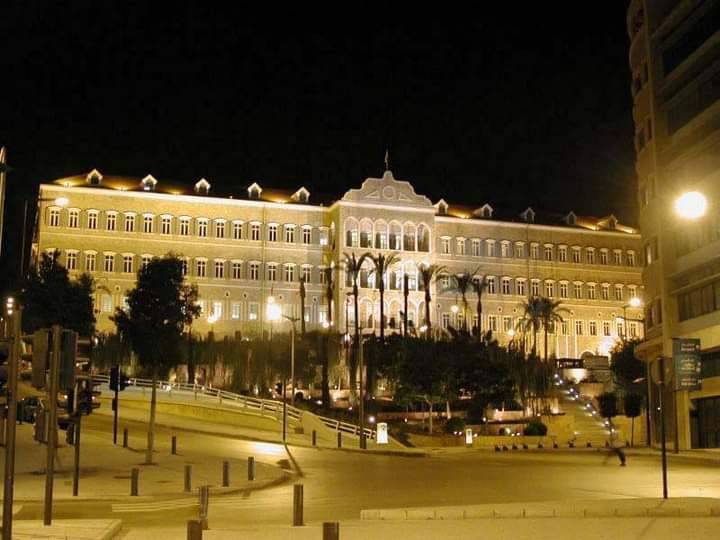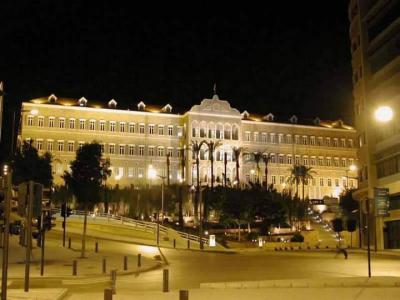After the departure of the American mediator Amos Hochstein, who brought back Lebanon's response to the Israeli proposal, the issue of government formation has returned to the forefront of concerns. This will be the fifth government formed during President Michel Aoun's term. Two were formed by Saad Hariri, the third by Hassan Diab, and the current fourth led by Najib Mikati, which included two unsuccessful assignments for Ambassador Mustafa Adib and Hariri. This latest government in Aoun's term is expected to be a permanent government with presidential powers if the election of a new president becomes complicated in November.
Yesterday, rumors circulated about the imminent setting of a date for mandatory parliamentary consultations. Initial expectations pointed to a tentative date next week, but this date is not fixed and it is expected that Baabda's circles will provide updates on the timing next week. This suggests that the possibility of announcing it by the end of this week has not been serious, as Hochstein's visit dominated interests and diverted attention from the premiership. If the aim is to preempt the public mandatory consultations with side negotiations conducted by Aoun and the key political parties, such discussions have not matured yet. As stated clearly by Gebran Bassil, head of the "Free Patriotic Movement": "No one is talking to anyone" and "we're not in a hurry."
In his position, Bassil tried to respond to the conditions set by caretaker Prime Minister Najib Mikati for accepting the assignment to form the government again. There is a cold confrontation between Mikati and Bassil, with each accusing the other in private circles of obstruction and escalating their demands. Mikati claims that Aoun and Bassil are imposing conditions that are difficult for any prime minister to accept and that Bassil wants to personally return to the government, anticipating its continuation beyond the end of the term. Meanwhile, Mikati raises his own demands for accepting a new assignment, which irritates Bassil, who did not hesitate to announce that Mikati will not be his new candidate for the upcoming premiership. He proposed a list of names from inside and outside Parliament, notably among them was MP Nabil Badr, while Mikhaeel is clearly not a serious candidate given his hostile positions towards "Hezbollah." On the other hand, Abdur Rahman Bizri stated he is not a candidate for the premiership.
This position can be understood as a maneuver and an increase in demands before serious discussions about the government's details and preempting any assignment with a prior agreement on its formation. Excluding Mikati does not close the door for him regarding the premiership; previously, the party opposed his rise but later accepted his presence as a fait accompli. Once again, the matter of government is in Bassil's hands as a key player. The other parties and political forces are trying to contain the situation by circumventing him and engineering the upcoming phase leading to the presidency. Under this context, one can understand the strategic cooperation between the Socialist Party and the Forces Party aimed at containing the government issue and attempting to block the future presidency of Sleiman Frangieh.
On the other side, Aoun and Bassil cannot be considered in a comfortable position, as the current government's continuity until the presidential elections is impossible. The controlling forces, namely President Nabih Berri and Jumblatt himself, cannot be managed, and forming another government poses complications regarding appointing a replacement for Mikati in light of a problematic Sunni situation and a decline in candidates. Mikati, who requested to be informed of the consultation date before it is announced publicly, is also uneasy. He does not desire an assignment based on weak votes. The calculations he conducted showed the possibility of being assigned with 65 votes, which would be a good average if achieved, but who can guarantee it? Not all deputies are with him, nor are they all against him, and any notable name has not yet strongly emerged.
In recent days, the name of Saleh Nasouli, an employee at the World Bank, has been circulated. He met with officials, including Aoun, Berri, and Bassil, and spoke with many figures during his time in Beirut, including journalists like Aouni Al-Kaaki. He promised, if assigned, to provide solutions to the crisis. Other names are also being discussed in a very tentative manner without reaching a serious stage.
Another development mentioned by well-informed political sources is the American reservation regarding Mikati being re-assigned, but this stance is unofficial. It is known that the Americans do not reveal any position before they monitor the entire scene, sense the atmosphere, and gauge the views of the involved parties.
The date for the consultations is in doubt, as is the formation of the government, while the search for a candidate's name that elicits a positive shock is ongoing. Until such a name is found, Mikati remains the caretaker Prime Minister, who may become assigned again, while forming the government is another matter entirely.




